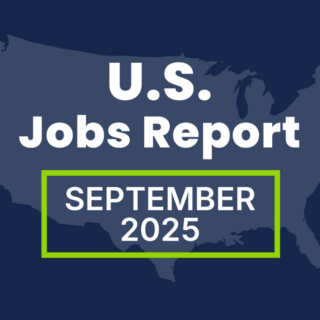Early careers recruitment is undergoing a seismic shift as Generation Z enters the workforce en masse. Gone are the days of one-size-fits-all early careers hiring strategies. Gen Zers aren’t shy about demanding more—more purpose, more flexibility, and more growth opportunities. Organizations who can navigate these expectations will win the hearts of Gen Z in the workplace.
Meeting these expectations isn’t just about filling entry-level positions; it’s about future-proofing your organization. In this new landscape, companies that crack the code of Gen Z recruitment will gain a significant competitive edge. Let’s explore some of Gen Z’s expectations and ways you can revolutionize your early careers recruitment to attract and retain the brightest minds.
Consumer-Like Experiences in Early Careers Recruitment
This generation and mobile devices go hand-in-hand—literally. They’re accustomed to digital consumer brand experiences delivered through online platforms and mobile apps.
Organizations that present tech-powered experiences throughout their recruitment process will get ahead with Gen Z. Consider incorporating:
- Mobile-enabled application processes with personalized and automated workflows
- Peer-driven recruitment content on socials
- Booking and confirming interviews via text message
- Tailored email campaigns and meaningful communications that provide hints and tips and explain timelines clearly
However, just because they’re digital-first, doesn’t mean Gen Zers don’t appreciate a human touch, so personalization is a must-have with regular check-ins from human recruiters to ease anxiety and build connection.
Authentic Storytelling
Gen Z job seekers trust employees three times more than the company to provide credible information on what it’s like to work there. They want to hear from their peers, real people who can share their lived experiences in the program or at your organization. Focus on employee generated content rather than highly staged and polished marketing content.
Featuring existing employees as brand ambassadors in early careers attraction content will help build trust and authenticity. Plus, it will help candidates see themselves in the role.
Opportunity to Demonstrate Potential
When it comes to early careers talent, their lack of experience makes it hard for employers to differentiate between candidates using résumés and CVs alone. Using a CV-blind approach, where only the critical requirements are assessed, helps to reduce unconscious bias and level the playing field.
Emerging talent tends to struggle with competency-based questions and may have difficulty understanding how their studies could apply to a given role. And often, those candidates excelling in competency-based questions have utilized generative AI tools like Chat GPT or coaching from their careers service—which can result in an inauthentic assessment of the individual.
Struggling to give evidence of a skill or behavior (i.e., competency questions, “tell me about a time when…”) when there is a lack of experience, doesn’t mean there is a lack of the potential. Leveraging realistic job previews, skills-based assessments or job simulations and situational-based interview questions gives emerging talent a feel for the job by showing them a snapshot of the real-life, day-to-day tasks of the role and the working environment. They are effective screening tools, giving candidates an opportunity to show how they might perform and demonstrate their potential. This helps level the playing field, and it can reduce early attrition by setting the right expectations from the start.
Receiving & Giving Feedback
What Gen Z lacks in experience, they make up for in enthusiasm. They’re keen to learn and grow and seek feedback in everything they do. While a candidate may or may not receive a job offer, feedback that they can use as they move forward in their career is the next-best outcome.
Often, candidates may receive a generic email or—even worse—no communication at all. When they’ve invested a considerable amount of time and effort into an organization, no feedback can leave a bad taste. At every stage, taking the time to provide personalized feedback gives candidates actionable steps that they can take going forward in the process, or if they’ve been rejected, that they can use to apply to your company again in the future. If the candidate was a close match, the feedback you provide could help them become the ideal candidate in your next cohort.
Additionally, with their consumer experience, Gen Z are keen to give feedback. In the absence of a mechanism for feedback, disgruntled candidates can take to social media and student forums to share their experiences and damage your employer brand. Instead, ask for feedback via a candidate experience survey like a Net Promoters Score (NPS) survey, which will allow you to measure your candidate experience and act on the feedback. In addition, monitor your social media platforms and forums and respond to demonstrate that you’re listening and taking it seriously. You may even consider offering candidates a means of contact via a dedicated email inbox and respond to any feedback you receive in a meaningful way.
Leveraging RPO Expertise for Early Careers Recruitment
Adapting your early careers recruitment to meet Gen Z’s expectations can be a complex undertaking, but you don’t have to go it alone. An experienced recruitment process outsourcing (RPO) partner can be instrumental in revolutionizing your approach. These specialists bring a wealth of knowledge about the latest recruitment trends, technologies and Gen Z preferences. An early careers talent solution can help you redesign your recruitment processes, craft compelling employer branding strategies and implement cutting-edge assessment techniques that resonate with emerging talent. Moreover, an RPO partner can provide the scalability and flexibility needed to handle fluctuating recruitment volumes, ensuring you’re always ready to capture top Gen Z talent.
By leveraging an RPO provider’s expertise, you can quickly transform your early careers recruitment program into a powerhouse that not only attracts Gen Z candidates but also sets the stage for building a pipeline of talent that will drive your company’s future success. The organizations that adapt now will reap the rewards of a diverse, skilled and motivated workforce for years to come.




